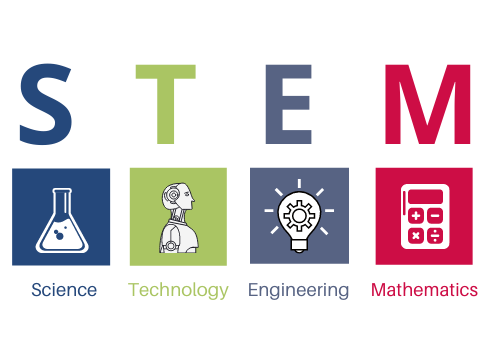Rise by Six: Your Daily Dose of Inspiration
Explore insights and stories that elevate your day.
STEMming the Tide: Why Every Student Needs a Splash of Science
Dive into the world of STEM! Discover why every student benefits from a splash of science in their education. Make waves with knowledge!
The Importance of STEM Education in an Ever-Changing World
STEM education—encompassing Science, Technology, Engineering, and Mathematics—is increasingly vital in today's rapidly evolving landscape. As industries undergo transformation driven by technological advances, individuals equipped with STEM skills are better prepared to meet future challenges. By fostering critical thinking, problem-solving abilities, and innovative mindsets, STEM education empowers students to adapt and thrive in diverse careers. Moreover, it encourages a strong foundation in analytical skills, essential for navigating complex real-world scenarios.
Moreover, embracing STEM education promotes inclusivity and diversity within the workforce. By motivating underrepresented groups, including women and minorities, to engage with STEM fields, we can foster a more balanced and creative environment. Not only does this broaden the pool of ideas, but it also addresses the skills gap in many industries. Therefore, investing in STEM education is crucial not just for individual success but also for driving innovation and growth in our economy, ensuring a sustainable future for all.

5 Simple Experiments to Spark a Love for Science in Students
Instilling a passion for science in students can be an exciting challenge for educators. Here are 5 simple experiments that not only captivate young minds but also foster a deeper appreciation for scientific principles. Each experiment is designed to be engaging, interactive, and easy to set up, making them perfect for classroom settings or at home. Let's dive into these fun activities that can spark a love for science!
- The Baking Soda Volcano: This classic experiment demonstrates chemical reactions. Mix baking soda with vinegar to create an explosive eruption!
- Invisible Ink: Use lemon juice to write secret messages. Reveal them by holding the paper near a heat source.
- Homemade Slime: Combining glue and borax creates amazing textures, allowing creativity and exploration in material science.
- Egg in a Bottle: Show air pressure principles by getting a hard-boiled egg into a bottle using heat.
- Water Filtration System: Construct a simple filter using sand, gravel, and activated charcoal to cleanse water, teaching students about environmental science.
How STEM Skills Prepare Students for the Jobs of Tomorrow
In today's rapidly evolving job market, STEM skills—which encompass Science, Technology, Engineering, and Mathematics—are more critical than ever for students preparing for the future workforce. These skills not only enable students to understand complex problems but also empower them to develop innovative solutions. Employers increasingly prioritize candidates who possess a solid foundation in STEM disciplines, as these areas are central to driving advancements in technology, healthcare, and sustainability. As industries continue to embrace automation and artificial intelligence, students proficient in STEM will find themselves at the forefront of this transformation.
Furthermore, integrating STEM education into the curriculum fosters essential soft skills such as critical thinking, collaboration, and adaptability. Students learn to work in teams, approach challenges methodically, and communicate their ideas effectively. According to a recent report, nearly 80% of jobs require some level of proficiency in STEM skills, making it imperative for today's learners to cultivate these abilities. By encouraging a passion for STEM through hands-on projects, coding workshops, and problem-based learning, educators can better equip students with the capabilities needed to thrive in a competitive job landscape.